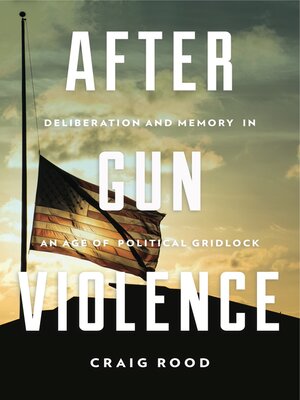After Gun Violence
ebook ∣ Deliberation and Memory in an Age of Political Gridlock · Rhetoric and Democratic Deliberation
By Craig Rood

Sign up to save your library
With an OverDrive account, you can save your favorite libraries for at-a-glance information about availability. Find out more about OverDrive accounts.
Find this title in Libby, the library reading app by OverDrive.



Search for a digital library with this title
Title found at these libraries:
| Library Name | Distance |
|---|---|
| Loading... |
Mass shootings have become the "new normal" in American life. The same can be said for the public debate that follows a shooting: blame is cast, political postures are assumed, but no meaningful policy changes are enacted. In After Gun Violence, Craig Rood argues that this cycle is the result of a communication problem. Without advocating for specific policies, Rood examines how Americans talk about gun violence and suggests how we might discuss the issues more productively and move beyond our current, tragic impasse.
Exploring the ways advocacy groups, community leaders, politicians, and everyday citizens talk about gun violence, Rood reveals how the gun debate is about far more than just guns. He details the role of public memory in shaping the discourse, showing how memories of the victims of gun violence, the Second Amendment, and race relations influence how gun policy is discussed. In doing so, Rood argues that forgetting and misremembering this history leads interest groups and public officials to entrenched positions and political failure and drives the public further apart.
Timely and innovative, After Gun Violence advances our understanding of public discourse in an age of gridlock by illustrating how public deliberation and public memory shape and misshape one another. It is a search to understand why public discourse fails and how we can do better.







